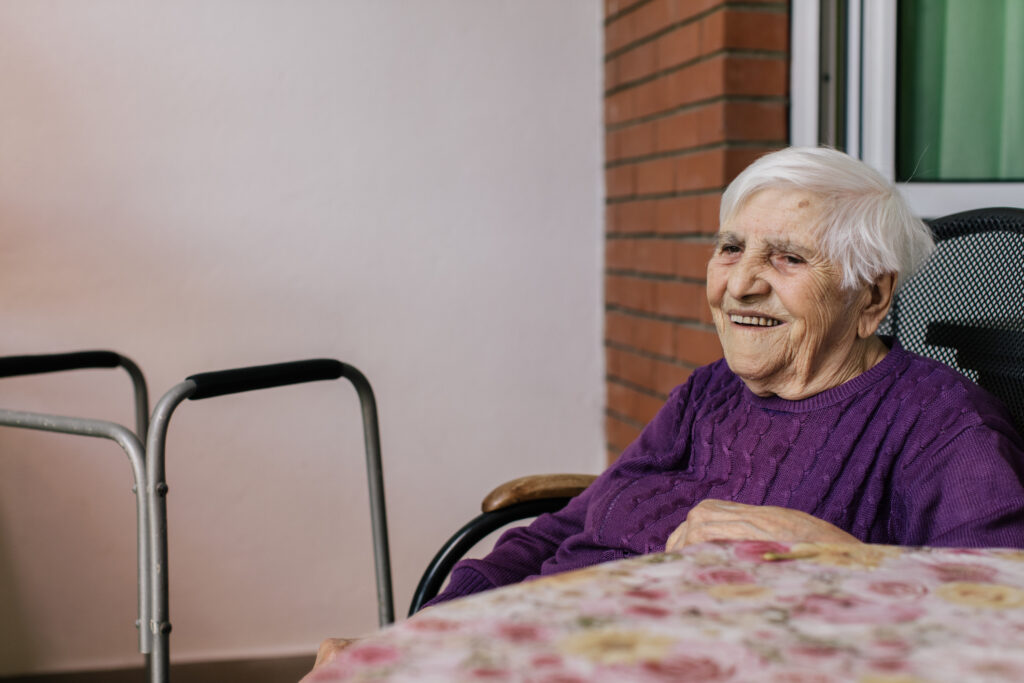
Improving supported-living housing with a bridging loan
“This is our first big loan in over 40 years, so our trustees were very wary.” Read our interview with Colin Waters – CEO of The Stable Family Home Trust.
Why did you need a bridging loan?
We have several supported-living properties for people who have a learning disability. One of the properties was no longer meeting our tenants’ needs. We could have refurbished it, but the actual design and layout weren’t ideal. So, we decided to start afresh. We found a property to buy for £1 million, used £300,000 of our reserves for the deposit and took a bridging loan for the remaining £700,000. We’ll pay the loan back once the sale goes through on the old property.
Could you have bought the property without the bridging loan?
No. The alternative was buying something that needed renovating, but that would have led to a long delay in moving tenants in. Plus, we would have needed to manage the cost of those renovations.
Why did you go to Charity Bank for your loan?
A high-street bank may not have been able to help us with what we were trying to achieve. With Charity Bank, the loan wasn’t just seen as a financial transaction; we discussed what we were doing and why we were doing it and it was clear that they supported us. We felt very comfortable working with them.
How did your trustees feel about taking out a loan?
Our trustees have always been very wary about taking out any sort of loan. We’ve been running for more than 40 years, and this is the first time we’ve taken out a large loan. So, they were cautious. but they understood it was needed to make improvements. Some of the trustees joined in on conversations with Charity Bank, which helped to reassure them. The fact that we were going to sell the old property so only needed a temporary loan, also helped the decision.
How did you find the loan process?
Generally, the process was very straightforward and quite streamlined. Timescales were within expectations, which was good as we needed to move quickly to secure the property before anyone else jumped in.
I think with any loan for a property purchase, there are going to be some legal complications. In our case, we lease the property to a housing association, who deal with the tenancies, so that needed explaining. But Jeremy guided us through the process and made it very clear what was needed from us. When anything came up, I could just phone him for help. It was really useful to have one dedicated person to talk to, who saw us through the whole process. It made things much simpler. If we’d gone to a high-street lender, I think the process would have been less personal and it our requirements would have been difficult to fit to standard lending criteria.
What would you say to other housing providers that are looking to take out a loan?
Having somebody like Charity Bank, that understands what you’re trying to do and the needs of your clients, helps. We contacted them when we first decided to buy a new property, so when we found somewhere to buy, we could act quickly and everything fell into place.
How will the new property improve your tenants’ lives?
While the property isn’t a new-build, it was recently converted into six units of accommodation and refurbished to a very high standard. Most of the units have their own kitchen and living space. In the old property, the tenants had to share a kitchen; now, they can socialise when they want to, but they also have their own private space. They were so excited on moving day. Everyone was wowed by the property.
Why is it so important for people with a learning disability to be able to access quality supported-living accommodation?
The transition from residential homes to supported-living has made a huge improvement to people’s lives. They have their own tenancy – their own home. So, for instance, when I used to visit a residential home, the staff would let me in and offer me a cup of tea. And now the clients come to their own door and offer me a cup of tea themselves. It’s a very different situation. We see tenants taking much more pride in where they live and becoming more confident about asking for other things in their lives.
Another benefit is that when you live in residential care, you get about £20 a week of disposable income, which you can use to buy toiletries and so on. In supported-living, the benefit system is different, so people have more say over their money. They go out more – to the cinema, for dinner and so on – and are just generally more independent.
Supported-living offers people so many more opportunities than residential homes. And, while the old property was not ideal for purpose, this new one really feels like a flagship property for our services.
If you need a loan to buy a property, please get in touch with Charity Bank on 01732 441919.
About Charity Bank
Charity Bank is the loans and savings bank owned by and committed to supporting the social sector. Since 2002, we have used our savers’ money to make more than 1400 loans totalling over £605m to housing, education, social care, community and other social purpose organisations.
Nothing in this article constitutes an invitation to engage in investment activity nor is it advice or a recommendation and professional advice should be taken before any course of action is pursued.


